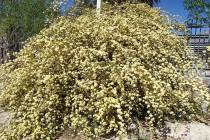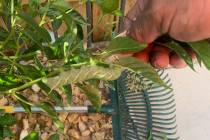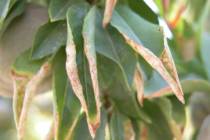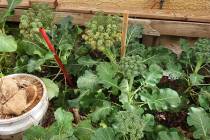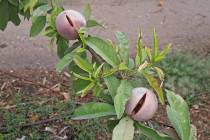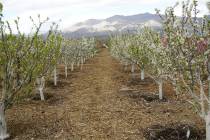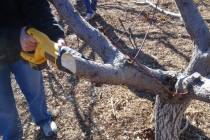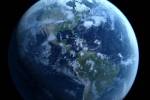Celebrate Earth Day — or rather, Eaarth Day
April 22 should be a global holiday of deep significance. Seriously, I mean that. I can't think of any other day whose meaning carries greater potential or consequence for life. It should be a celebration, and calibration, of our future. Earth is home to all people, every religion, nationality, race and political persuasion -- not to mention the millions of other species we share it with. Surely Earth Day should reign supreme as the Big Enchilada, the Mother of all Holidays. But in the overall scheme of our daily lives, it barely gets a nod in the mainstream media.
It's been 40 years since the first Earth Day celebration helped raise awareness about our incredible home. Just 17 at the time, I loved the idea and have been in love with my planet ever since. But I admit I'm guilty of abusing the relationship. Over the course of those four decades, I often took her for granted. It was mostly her carbon-based charms that quite literally drove me to excess. And, although there were warning signs, I'm afraid the over-indulgence has resulted in some permanent damage in terms of her ability to sustain the beautiful dance of life (as we've known it ). The song isn't over, but the tune is definitely changing.
Many of us share this relationship. None has been more eloquent about the topic than author and environmentalist Bill McKibben. In his 1989 book, "The End of Nature," McKibben painted a picture of a world that was being fundamentally transformed. The idea of a "natural world" had ceased to exist. The climate, so altered by human activity, was now a product and responsibility of our species. At that time, the picture was not completely clear and the book had a philosophical aspect to it, although many of its warnings and projections have since become reality.
Twenty years later, with reams of scientific data and real-world observations as backup, McKibben's latest book brings the picture into focus. The fact is that we now live on a fundamentally different planet than the one we've known . Following McKibben's logic, this new planet deserves a new name, thus welcome to Eaarth. In "Eaarth: Making a Life on a Tough New Planet," the author explains that the effects of climate change are now permanently with us.
We (meaning all nearly 7 billion of us) have crossed a point of no return. And though even the most severe cuts to greenhouse gas emissions will not stop many of the changes that we've set in motion, it is only our immediate actions that can prevent even more severe consequences from piling on.
In the book's preface, McKibben writes, " we'll need to figure out what parts of our lives and our ideologies we must abandon so that we can protect the core of our societies and civilizations. There's nothing airy or speculative about this conversation; it's got to be uncomfortable, staccato, direct." I invite you to read this important book.
Facing this reality is one reason Earth Day -- or, rather Eaarth Day, should hold a prominent place in our culture. It is only through our collective efforts that beneficial change will occur, if we want it. The key word is "beneficial" since change is inevitable. We either play a role in guiding the change or not. Inaction is also a choice, but one that can easily lead to suboptimal results.
There is no substitute for the human spirit. Our ability to envision and shape our destiny for the greatest good is where our true power lies. Let's use this special day to revitalize our commitment to honor and protect our magnificent planet, our home, our Earth.
Steve Rypka is a green living consultant and president of GreenDream Enterprises, a company committed to helping people live lighter on the planet. Steve can be reached via e-mail at steve@greendream.biz. More information relating to this column is posted at www.greendream.biz.








